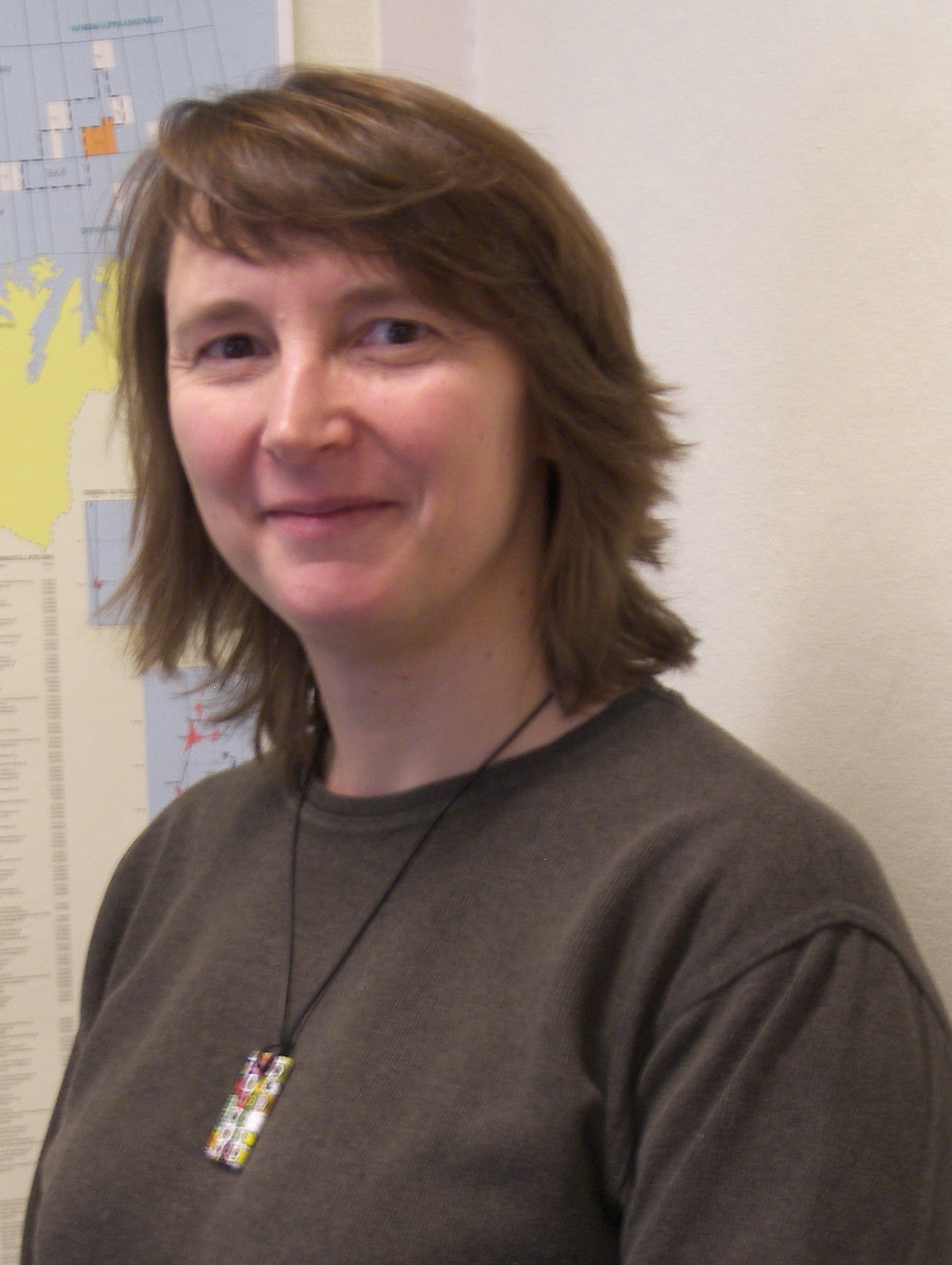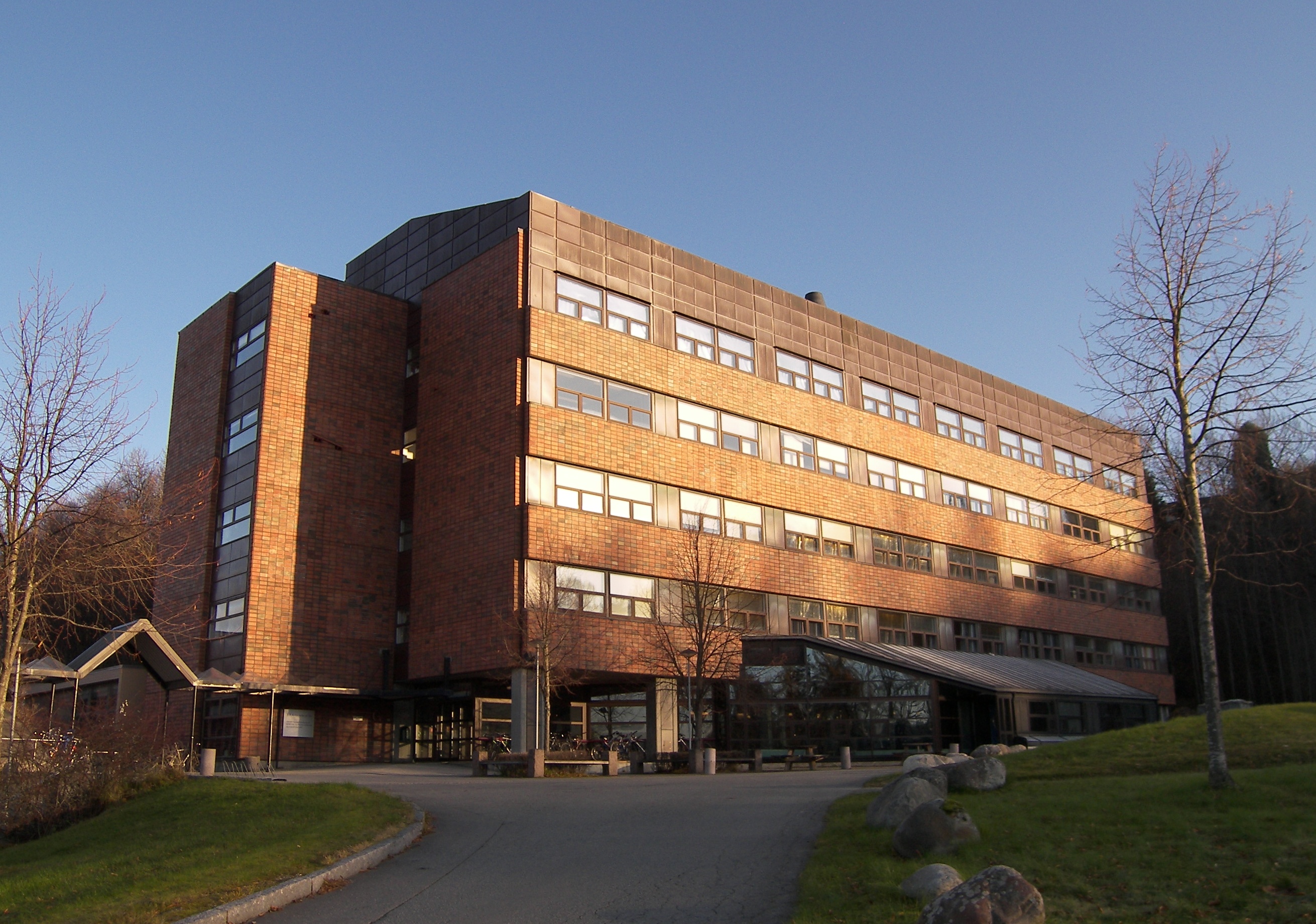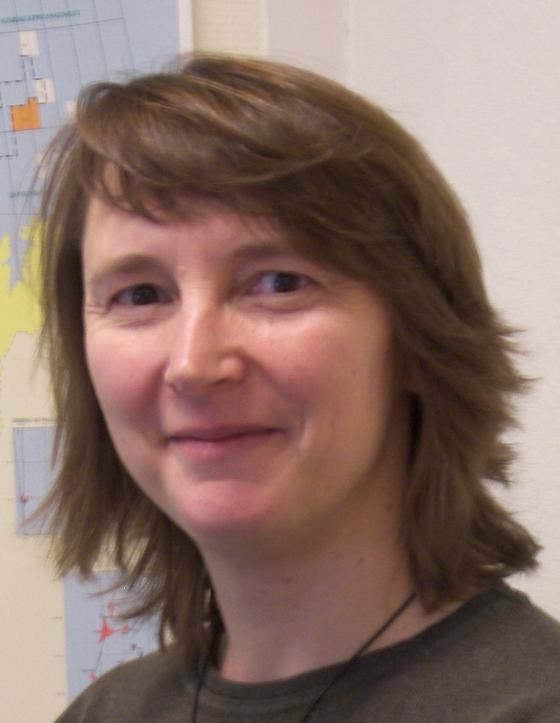Wants to be a role model
“It’s possible for women to be managers in male-dominated research fields. Just come to SINTEF and see for yourself,” says Marie-Laure Olivier. She should know what she is talking about. Marie-Laure has always been surrounded by men.

“I’m pleased when I get good applications from women,” says Marie-Laure Olivier and smiles.
She is Research Director in the Department of Seismic and Reservoir Technology at SINTEF Petroleum Research in Trondheim.
“I would like to see women being motivated to work in all areas of society. There is no reason that some professions or fields should be dominated by one sex.”
Surrounded by men
With an education in physics, Olivier has worked mainly in jobs where there are few other female researchers. She is French, and before coming to Norway she worked at FRAMATOME (now AREVA), a company that designs and constructs nuclear power plants. She came to SINTEF in April 2002 to work as a researcher in reservoir technology. Not surprisingly, she was the only female researcher in the department.
But when the departments of seismic and reservoir technology were merged, she suddenly got a few female colleagues.
“I have always been surrounded by men and have never viewed it as a problem in relation to my research. But I found it to be very positive for the workplace when there were more women. It has to do with things in the daily working environment, for instance it was nice to have some women to talk to.”
She believes there is a general feeling at SINTEF that it is good to have a gender-mixed workplace.
“I also hear from my male colleagues that they would like to have more women in their department.”
Few women
There are still not many women though. SINTEF Petroleum Research employs 94 researchers. Of these, 14 are women, which is roughly 14 percent of the total. The department headed by Olivier has 26 employees, five of whom are women.
“What do you think is the reason that there are so few female researchers?”
“I don’t know why this is such a male-dominated research field. I have always like physics, and I could not understand why the other girls at school did not choose the same subject as me,” says Olivier.
She is pleased that one of the groups in her department has a good percentage of women. In the seismic technology group, three of the eight researchers are women.
“For one reason or another, there are more women working in seismic than in reservoir technology, and we have also found it easier to recruit women to this field. Maybe it is because seismic technology is a more mathematics-based subject.”

Positive discrimination
Olivier got her degree at Ecole Polytechnique Féminine in France, a polytechnic school which up until 1994 was open only to female students. The school was established in 1925, when the other schools were closed to women, because there was a great need for engineers in France at the time.
“The school had a policy that discriminated in favour of women, since it was only possible for female students to attend. In this case I think this was the right approach. All the other engineering programmes in France had about 10 percent women, which would have been the situation at this school too if it had worked like the others,” says Olivier.
She believes positive discrimination is appropriate if it helps to bring about change in cumbersome systems. However, she does not use it in hiring decisions at SINTEF.
“Maybe I should? But no, I don’t look at the person’s gender when we receive an application. Our most important criterion is high scientific quality. People who work at SINTEF must also have a good ability to cooperate and be motivated to work in the field of research.”
But she also sees that cultural factors can stand in the way of recruiting women. It can be tiresome to be one of just a few women in a male-dominated workplace if the women are continually subjected to “macho humour”.
Hire women
Olivier thinks there are no good reasons to give preference to men when hiring.
“When you are responsible for the scientific, financial and administration aspects of the department, you are of course concerned that people take responsibility for their own work and do their job. But luckily in Norway and at SINTEF, it is not so important whether an employee is a man or women with regard to issues such as parental leave and taking care of small children.”
She believes this also helps to improve gender equality in working life, and she emphasizes:
“Do not hesitate to hire women because you think they will be absent from work due to maternity leave and the like. I never think like that. In my experience, women are not absent from work more than men.”

Flexible daily life
Olivier believes it is important to give the employees flexibility in their daily lives and that this is something they put great value on.
“For instance, I never say no when somebody needs to stay home to look after a child. We have flexible working hours, and as long as everything is in order with the projects that people are working on, they have complete freedom to organize their day as they like, and they have the opportunity to work at home during certain periods. It is important not to put too much pressure on people and that my door is open so that the employees know they can come and discuss things when they need to.”
But Olivier is not sure whether this is more important for female employees. It seems to her that men and women value and deal with flexibility equally as well in their work.
It is possible
“Do you think that you as a woman are more open to seeing other women’s qualifications than male managers are?”
“Yes, I think perhaps that I have fewer qualms about recruiting women. And I know from which universities and research circles I can find good female researchers.”
“What advice would you give other research directors who want to recruit more women?”
“I would recommend that they focus on high scientific quality when hiring – then the female applicants have a good chance of coming out on top.”
Hiring more women is also crucial for future recruitment, in Olivier’s view.
“It is important to show that there are women in these research fields and that it is possible to have a career here.”
In this series, we present some of the leaders from the university and university college sector in Norway who have been successful in changing the gender balance in their environments.
Marie-Laure Olivier is Research Director in the Department of Seismic and Reservoir Technology at SINTEF Petroleum Research in Trondheim.
Marie-Laure’s advice: Focus on high scientific quality when hiring. Then the female applicants have a good chance of coming out on top.
As of 1 January 2009, SINTEF Petroleum Research had 94 employees. Fourteen of these, or 15 percent, were women. In the management group there are two directors – one woman and one man, as well as six research directors, of which two are women.
The Department of Seismic and Reservoir Technology has 26 employees, of which five are women. The seismic section has eight employees, and three of these are women.
